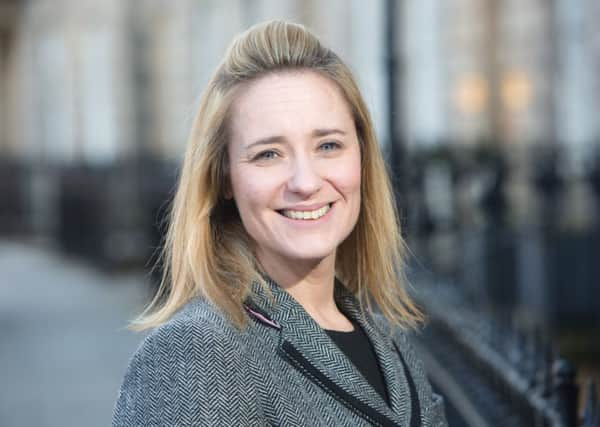Susan Law: Female talent will follow legal firms who adapt


However, there is absolutely no doubt the legal profession as a whole is perceived to be behind the times in terms of supporting and promoting women with families to advance into senior positions. Whilst I am fortunate to work in an environment which supports a positive work-life balance, flexible working and progression based on merit, this is not the experience of all women in law.
The recent Profile of the Profession 2018 report published by the Law Society of Scotland points to several challenges.
Advertisement
Hide AdAdvertisement
Hide AdThe research shows there remains a clear disparity in the number of women being promoted to Equity Partner, with 20 per cent fewer in such positions. In addition, the length of time it takes women to secure those roles is, on average, longer.
Perhaps unsurprisingly, 75 per cent of women participating in the research felt that starting a family was the main barrier to progression into senior positions in law. Of the women who have considered leaving the profession, two of the top three reasons cited included starting a family and the negative image around maternity leave and part-time working.
A closer examination of the figures provides some further insight into the practical challenges legal mums are facing in comparison with legal dads.
For example, female lawyers with children overwhelmingly consider themselves as the primary caregiver across all age categories of children, although the trend is improving for men as children increase in age. While 9 per cent of male respondents stated that they would primarily take time off work when a child or other dependant is ill, this figure was 49 per cent for female respondents. Encouragingly, this represents a drop from 59 per cent in 2013.
For me, and in my experience, the solution is not to move away from promotion based on merit and ability, but rather to recognise and address the systemic challenges that can prevent women from securing senior positions when they are the best people for the job. However, with challenge comes opportunity.
The evidence shows that the top priority for new lawyers, both men and women, is work/life balance, and 90 per cent of women in the same study noted more flexible working options would make the biggest difference to their career prospects. As such, new, talented female lawyers are qualifying in the context of a wider shift in workplace trends and will increasingly expect this to be mirrored in our profession. This expectation will be reflected in their choice of employer, and the firms that are slow to adapt will lose out on new talent.
In a sense, the legal profession is adapting alongside our clients. As other industries embrace new ways of working, so too are we. Cross-firm projects mean there is increased understanding among colleagues about school runs, parents evenings and sick children, both amongst male and female colleagues.
The challenge then is one of both culture and perception. On the former, there is no doubt that law has an unflattering legacy in this regard, but that culture is shifting.
Advertisement
Hide AdAdvertisement
Hide AdIn respect of the latter, we have to do more to celebrate best practice in the industry and promote positive role models to tackle a perception which may put off talented young women from a legal career.
Importantly, colleagues across the profession have noted that the situation is improving. An overwhelming majority of lawyers who participated in the Law Society’s research said there had been improvement to some extent or to a great extent over the past five years in these sorts of issues. That’s important contextually, and provides some momentum to build on in the future.
We have some way to go to get our legal mums on an equal footing to colleagues in other professions, but my experience shows we’re getting there.
Susan Law is a Commercial Property Partner at Lindsays, and was recently re-appointed as a member of the firm’s Management Board